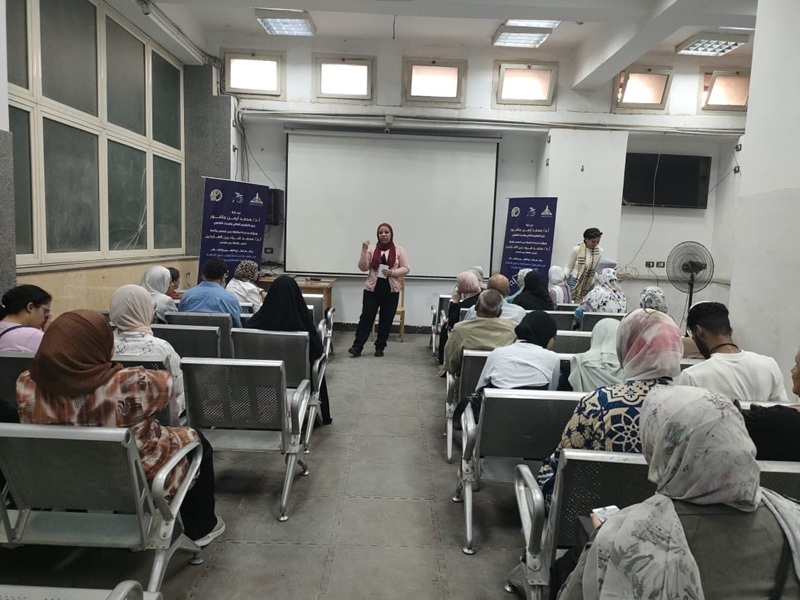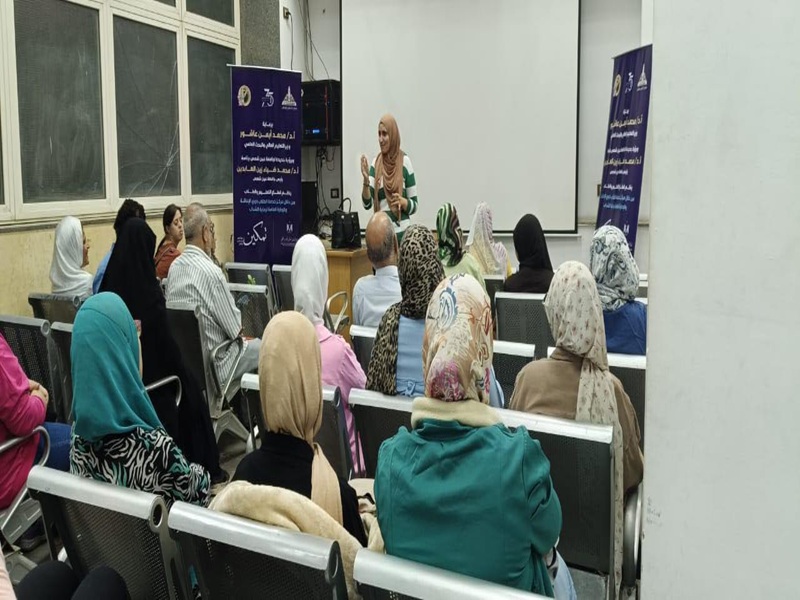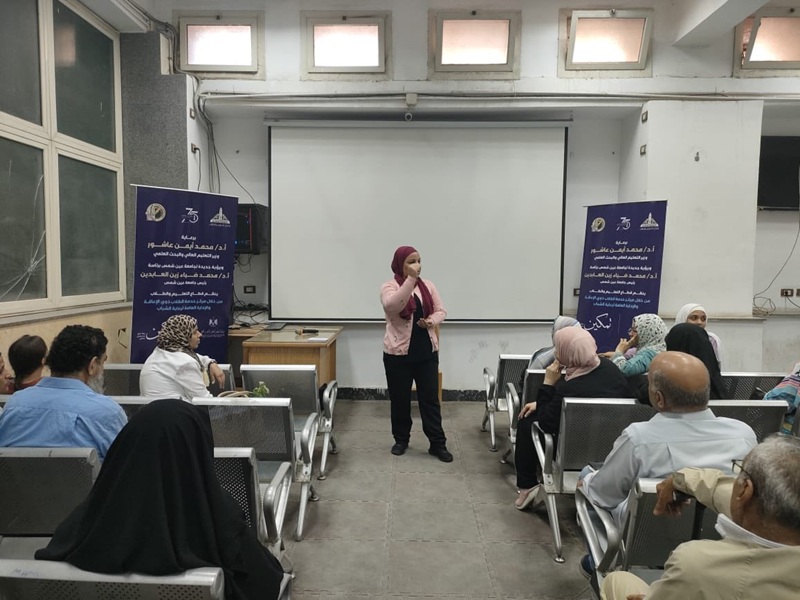As part of “Tamkeen” Initiative, the Education and Student Sector continues its awareness seminars for families of students with disabilities, through a seminar on best practices for supporting families
Within the framework of the presidential initiative “Tamkeen”, launched by His Excellency President Abdel Fattah El-Sisi to support and empower students with disabilities in Egyptian universities, and under the patronage of Prof. Mohamed Diaa Zain El-Abedeen, President of Ain Shams University, a specialized awareness seminar titled “Psychological and Social Impacts and Best Practices for Supporting Families” was held at Al-Gomhoreya Building in the male students’ university dormitory.
The seminar is part of a series of family guidance events for parents of university students with disabilities, organized by the Education and Student Affairs Sector at Ain Shams University, represented by the Center for Students with Disabilities, under the supervision of Prof. Rana El-Helaly, Director of the Center. The initiative aims to support parents and raise their awareness of optimal methods for interacting with their children with disabilities.
 |
 |
The event was held under the administrative supervision of Mr. Ibrahim Saeed Hamza, Assistant Secretary of the University for the Education and Student Affairs Sector.
The seminar featured talks by Dr. Mayar Nawareh, Lecturer in the Department of Psychiatry at Ain Shams University, and Dr. Marwa Mendi, Lecturer in the Department of Psychology at the Faculty of Arts.
The session aimed to shed light on the deep psychological and social challenges faced by families who have a member with a disability, and to provide practical strategies for enhancing family support and positive inclusion.
The seminar focused on analyzing the psychological and social dimensions affecting parents and typically developing siblings. Many families experience complex psychological and social challenges upon the arrival of a child with a disability, beginning with parental shock, followed by denial and confusion, and later growing feelings of guilt that may develop into depression, particularly for mothers. These emotions lead to continuous psychological pressure that weakens the family’s ability to adapt.
Socially, some families suffer from embarrassment or fear of stigma, resulting in reduced participation in public events and activities. Family relationships may also face additional strain due to the increased time and effort dedicated to caring for the child.
Typically developing siblings may also experience conflicting emotions of jealousy and sympathy, which can develop into behavioral or psychological issues such as aggression, low self-esteem, or sleep disturbances due to feeling less attention compared to their sibling.
The seminar emphasized that these challenges highlight the urgent need for comprehensive psychological and community support to enable families to adapt effectively.
The session concluded with a set of recommendations designed to empower the family as an integrated system, strengthen family bonds, and promote balance. The speakers stressed the importance of adopting balanced parenting approaches in families that include a child with a disability, affirming that fairness in treatment and equitable distribution of attention among all children are fundamental to maintaining healthy family dynamics.
Recommendations also included the importance of engaging typically developing siblings in positive responsibilities toward their brother or sister through participating in teaching life skills and daily activities, while providing them with simplified information about the disability to enhance understanding, acceptance, and reduce negative emotions.
The session further encouraged involving all children in simple household decision-making and using reinforcement and rewards to promote cooperative behaviors, with a focus on highlighting the strengths and positive qualities of all family members.
The speakers also emphasized the importance of shared activities, whether inside or outside the home, including integrating the child with a disability in daily tasks and sensory activities alongside siblings to strengthen family cohesion.
The session concluded by affirming that balanced and positive engagement with the challenge fosters compassion and instills values of humanity and responsibility in siblings, promoting increased solidarity and unity within the family, and transforming a source of pressure into a source of emotional and moral strength.


.svg)

